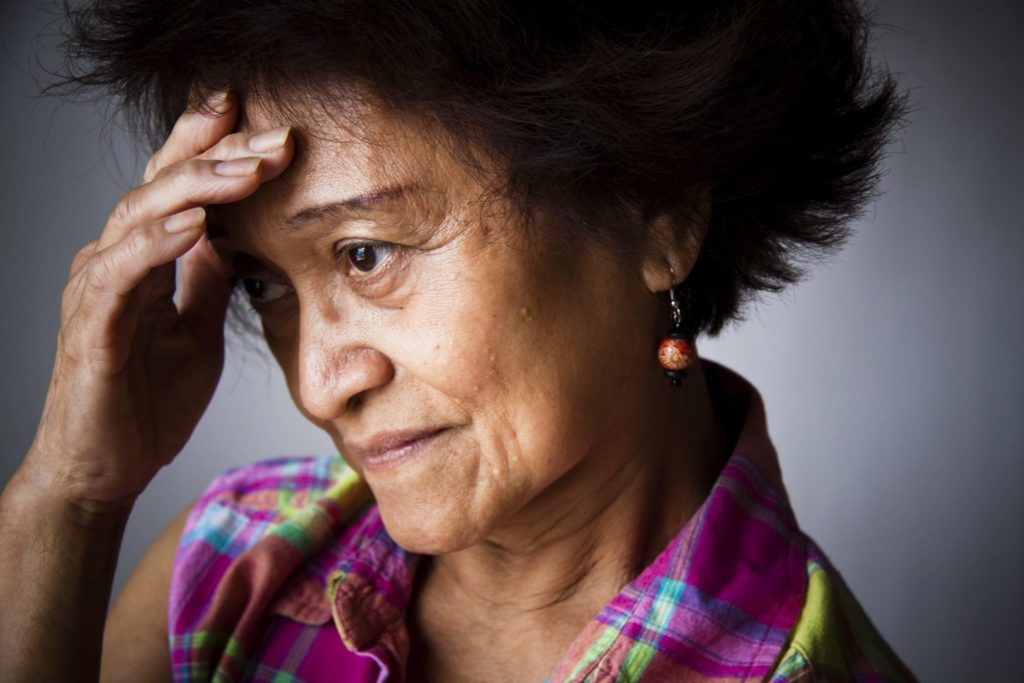Although it might be surprising to younger adults, clinical depression is a common problem for many seniors. Approximately 6 million Americans aged 65 and older are affected by late-life depression. Unfortunately, very few of them actually seek treatment. Symptoms of late-life depression often differ from those typically exhibited by younger adults. This is one of the reasons that depression is less likely to be diagnosed in seniors. Also, most elderly adults have medical conditions for which they take medication. Depressive symptoms are often mistakenly attributed to the effects of the medications or the health issue itself.
Lifestyles of Seniors Make Depression Symptoms Less Noticeable
The sad truth is that seniors don’t typically have the same support system they had when they were younger. Isolation is a common problem because many elderly people have not only lost their spouse and other close family members, but many of their friends as well. They no longer have co-workers with whom to interact on a regular basis. Health issues, the inability to drive, and other factors also cause them to be less active both physically and socially. Depression that occurs later in life will typically last longer than depressive episodes in younger adults. It also increases the risk of serious illness and death. When elderly individuals are trying to rehabilitate from an illness, depression will make it more difficult. Studies of nursing home patients with physical illnesses have shown that they are more likely to die from those illnesses if they also suffer from depression.
Further Complications for Elderly Patients with Depression
Although people of all ages who battle depression frequently experience insomnia, it is especially common in elderly patients. Elderly people who have difficulty sleeping are also more likely to develop depression. It is important for them to be treated for insomnia as soon as possible in order to prevent the onset of depression as well as further physical complications. New drugs are available that are both safe and effective for treating insomnia in the elderly.
Risk Factors for Depression in the Elderly
- As with all ages, elderly females are more likely to develop depression
- Being single, whether it is due to never having married, being divorced, or being widowed
- Not having a social network that they can rely upon for support
- Experiencing stressful life events
- Certain medical conditions, including dementia, hypertension, diabetes, stroke, and chronic pain
- Specific types of medications
- A family history of depression
- Fear of dying
- Grief
- Living alone
- Being ill
- A history of suicide attempts
When considering all the risk factors for depression in the elderly, it is easy to see why it is such a common problem for this particular population.
The Incidence of Suicide in the Elderly
Another reason that depression is particularly serious in the elderly population is because this particular group has a higher risk of suicide than other age groups. Those in the 65+ category make up 12% of the population, but are responsible for 16 to 25% of suicides. Although the majority of elderly individuals who develop depression are female, a higher number of males actually commit suicide as a result of depression. It is important to note that not all of the elderly men who commit suicide have exhibited signs or have been diagnosed with depression.
Quality of Life Plays an Essential Role in Preventing Depression and Suicide
Feeling useful is important to people of all ages. Once an individual reaches the age of retirement, he or she may no longer feel useful to society. Those who are socially isolated and have no spouse typically don’t experience the quality of life that they once had. There is nothing that inspires them to get up in the morning and go through their normal routine. They have nothing to look forward to and no interaction with other people. There is nothing about their life that brings them joy. This significantly increases their risk for depression as well as suicide.
Diagnosis is Important in Helping to Prevent Suicide
Too often, when elderly people make remarks about being worthless, having no purpose, or more direct statements about killing themselves, they aren’t taken seriously. When they see their primary care physician, they may be rushed in and out of their office without taking the time to assess their emotional health. Paying close attention to your elderly loved ones when they are showing signs of depression may be the only thing that ensures that they are diagnosed. Always take them seriously if they say they feel depressed or talk about ending their life. Too often, people think that aging and depression go hand in hand, even though it doesn’t have to be the case. Unfortunately, when depression does occur in the elderly, it often leads to a bleak outcome. This can be prevented if they get the appropriate treatment as soon as possible. Proper treatment can make a tremendous difference in how they view the quality of their life.

